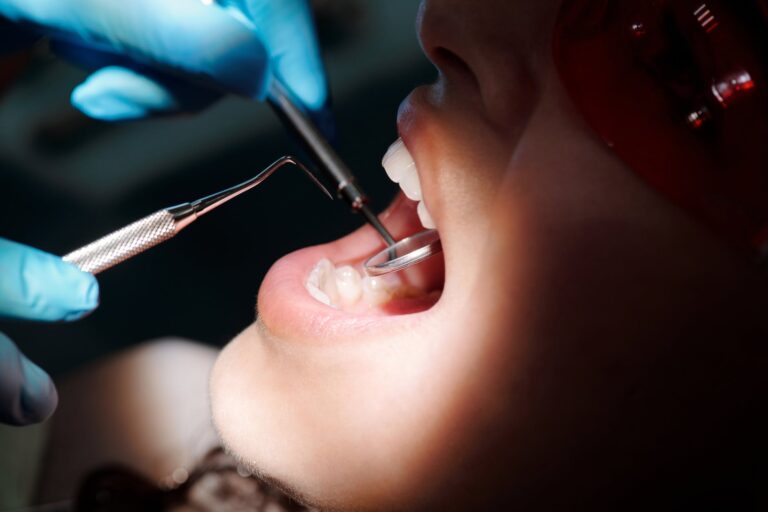IMPACT OF SPEECH DISORDERS ON MENTAL HEALTH
A speech disorder is a blanket term applied to a group of conditions involving a person’s inability to create or form speech sounds that are needed in order to communicate with others. These disorders can be classified into five groups:
- Articulation disorders
- Phonological disorders
- Voice disorders
- Disfluency
It is different from that of language disorders that are common in children. This type of language disorder often refers to a person with difficulty when it comes to expressing their thoughts and feelings to others or understanding what is being said to them.
Causes of speech disorders
Speech develops naturally together with other signs of growth and development. It is one of the main ways that we communicate with other people around us. Speech and language disorders are quite common in toddler and preschool-age children.
Common causes of speech disorder include:
- genetic abnormalities
- trauma to the brain
- emotional stress
- structural changes to the muscles used for speech
- hearing loss
How are speech disorders diagnosed?
There are many tests that can be used to diagnose different speech disorders.
- Denver Articulation Screening exam – This test is widely used to diagnose articulation disorders. It evaluates the pronunciation of a child between the age of 2 and 7.
- Early Language Milestones scale 2 – This test determines the language development of children. It is used to quickly identify delays in speech or language disorders.
- Peabody Picture Vocabulary test – It is used to measure a person’s ability to speak and their vocabulary. The person is asked to listen to different words and then choose pictures that closely describe the words. Those with intellectual disabilities and people who are blind cannot take this test.
How speech disorder affects mental health
As with any disorder, speech disorders have a great impact on a person’s mental health.
Lack of confidence
Children who are unable to pronounce words properly or have trouble saying certain words will often avoid being asked to speak in class. There is also the tendency to avoid social interactions for fear of being ridiculed by others or their friends. As they grow up, this lack of self-confidence can manifest in many different ways including the inability to make friends or the inability to form meaningful connections with others because they are unable to express their thoughts and feelings effectively.
Anxiety
Misdiagnosed or undiagnosed disorders of speech can lead to patients developing anxiety. As they grow and mature, that anxiety may manifest in different ways such as fear of speaking in public or other anxiety disorders. Anxiety disorders are classified as a form of anxiety that is constant and intense so much so that the person feels tense, preoccupied, distracted, and always on high alert.
Feelings of loneliness
When people lack the confidence to engage with other people due to a speech impediment, it can lead to them feeling lonely and alone. As humans, it is crucial that we have meaningful interactions with others. But in order to form that connection, communication is key. While there are some with speech disorders who have gone on to live full lives, those with severe forms of the disorder may be at a disadvantage and are prone to feeling a sense of isolation and loneliness.
Treatment for speech disorders
Early intervention is one of the best treatments for speech disorders. The earlier a disorder is caught and speech therapy activities created to correct it, the better.
The type of treatment recommended for speech disorders will depend on the type of disorder the person has and its underlying cause. Treatments can include:
- speech therapy activities aimed at building familiarity with words and sounds;
- exercises that focus on strengthening the muscle structures used in forming speech sounds
Target selection
This treatment will involve the patient practicing words or sounds in order to familiarize themselves with the speech pattern.
Contrast therapy
This therapy asks the person to say word pairs that have different speech sounds.
Ear device
An ear device is a small electronic aid that fits inside the ear canal. This is mainly used to help with disfluency for people with a stutter. Some devices will play a noise to control stuttering while others replay versions of the speaker’s voice as if someone is speaking with them.
Medication
Sometimes speech disorders are mental in nature. Anxiety is one leading cause of speech disorders that is mental in nature. Stressful situations may help trigger anxiety which results in the person having trouble pronouncing words or sounds. Anxiety medications can be prescribed to help reduce symptoms of the disorder.
FINAL THOUGHTS
It is important to reiterate that early detection is very important for the treatment of speech disorders. A child showing symptoms of a speech disorder and then given the appropriate speech therapy activities have a better chance of recovery than someone already in their teens or adulthood. Although not impossible, it is harder to correct after years of no treatment or misdiagnoses.
Credit: Eliza Brooks











Comments are closed.